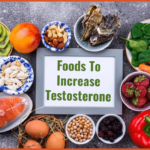Eating organic foods has several potential benefits for individuals, the environment, and the community. Here are some reasons why eating organic is beneficial:
- Reduced exposure to pesticides: Organic farming methods adhere to strict regulations, limiting or avoiding the use of synthetic pesticides and chemical fertilizers. Choosing organic foods can help reduce your exposure to potentially harmful chemicals.
- Nutritional value: Organic fruits and vegetables often contain higher levels of certain nutrients, including antioxidants, vitamins, and minerals. Some studies suggest that organic crops may have a higher concentration of certain beneficial compounds due to the absence of synthetic additives.
- Environmental sustainability: Organic farming practices promote sustainable land management and conservation of natural resources. These methods strive to minimize soil erosion, protect water quality, and enhance biodiversity, leading to healthier ecosystems and reduced environmental impact.
- Improved animal welfare: Organic animal products, such as meat, eggs, and dairy, come from animals raised with higher welfare standards. Organic farming practices prioritize animal well-being by providing outdoor access, pasture grazing, and natural diets, among other requirements.
- Reduced antibiotic and hormone exposure: Organic livestock farming prohibits the routine use of antibiotics, hormones, and growth promoters. Choosing organic animal products can help reduce your exposure to these substances while supporting more responsible animal husbandry practices.
- Support for local and small-scale farmers: Organic farming often supports small-scale and local farmers who follow sustainable practices. By choosing organic foods, you can contribute to a more diverse and resilient food system while supporting farmers committed to environmental stewardship.
- Flavor and quality: Many people find that organic foods have a more natural and robust flavor compared to conventionally grown counterparts. Organic farming methods prioritize soil health and biodiversity, which can result in improved taste and quality of organic produce.
It’s important to note that more research is needed to fully understand the potential benefits of organic foods, and individual experiences may vary. When purchasing organic foods, look for certified organic labels that ensure the product meets specific organic standards set by reputable certification organizations.











